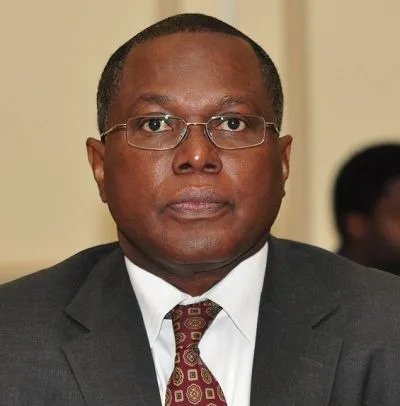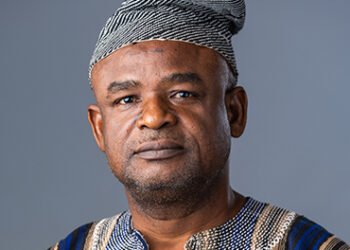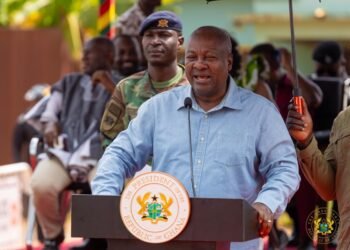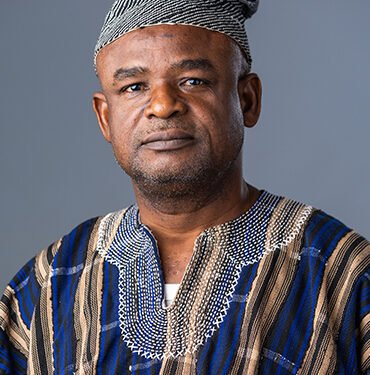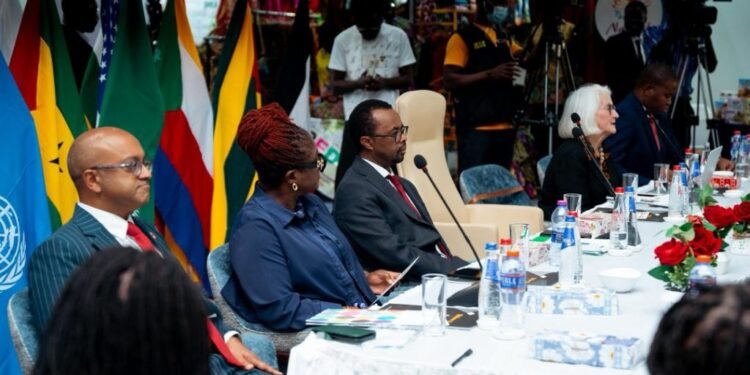Chairman of the National Development Planning Commission (NDPC), Dr. Nii Moi Thompson, has sounded the alarm over what he describes as the economic imbalance caused by the over-centralisation of public contracts in Accra.
Speaking in an interview, Dr. Thompson argued that the practice of awarding contracts to Accra-based firms is depriving local economies of millions of cedis, deepening inequality amd widening economic gaps across Ghana’s districts.
He noted that though this problem is not new, the extent of economic disparity has grown worse due to the government’s failure to decentralise decision-making and investment. According to him, the issue has historical roots dating back to the early years of Ghana’s independence.
“The first attempt to rectify this – because Accra has always been disproportionately favoured in terms of national resources – was in 1965. We tried to address this but then in 1966 we threw away the programme. And now it has gotten steadily untenable”
Dr. Nii Moi Thompson, Chairman of the NDPC
Dr. Thompson drew attention to what he described as an economically senseless approach of awarding local service contracts to Accra-based companies, citing the example of cleaning and sanitation contracts.
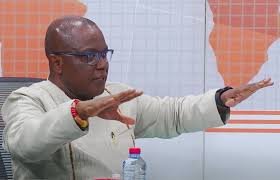
“To make matters worse, we sit in Accra and give a contract to one or two companies to go and clean gutters in the 260 district assemblies which makes absolutely no sense. Because cleaning is the most localized activity you can imagine and so when you do that, you siphon wealth from all these 260 District assemblies in Accra – therefore aggravating the poverty and inequality”
Dr. Nii Moi Thompson, Chairman of the NDPC
Dr. Thompson revealed that this centralised model has stripped district assemblies of local income generation and weakened their financial independence for a long time. He further explained that when funds intended for local services are redirected to contractors in Accra, the economic circulation within districts collapses.
He illustrated this by explaining how each cedi paid locally can generate several rounds of economic activity. However, when payments are made to Accra-based firms, those benefits disappear from local communities completely.
“So let’s say 1 cedi turns around 5 times in an assembly as part of economic activity but the government pays 10 million cedis to somebody in Accra collecting garbage there. What the government has effectively done is actually siphoned 50 million cedis from them to Accra”
Dr. Nii Moi Thompson, Chairman of the NDPC

The NDPC Chairman stressed that this economic distortion is a major driver of rural-to-urban migration, explaining that when government policy concentrates resources in the capital, people are naturally drawn to follow the money. “And then when people come to Accra basically following the money, we say ‘no, go back.’ If you don’t want them to come to Accra, don’t take their money and trust me they won’t come,” he added.
NDPC Tightens Oversight
In a related directive, the NDPC has announced that all ministries, departments, and agencies (MDAs) must now obtain clearance from the Commission before they can access government funds.
Dr. Thompson said the new oversight measure, introduced in collaboration with the Ministry of Finance, aims to align public expenditure with national development goals. He explained that every MDA is required to submit its medium-term and annual plans to the NDPC for verification before submission to the Ministry of Finance.
“The NDPC is supposed to verify that to make sure that they are aligned with the priorities of the government,” he said. According to him, this measure follows years of weak coordination in which agencies received funds without alignment to national priorities. “They were just getting the money and spending it anyhow,” he stated.
“Now if you do not get clearance from NDPC, we are not giving you money,” Dr. Thompson added, revealing that Finance Minister Hon. Dr. Cassiel Ato Forson has now made NDPC clearance a precondition for all MDA fund releases.

The NDPC said the initiative is part of a broader national effort to strengthen accountability, improve planning, and ensure that Ghana’s development resources benefit all regions equally – not just the capital.
He urged all MDAs to comply by submitting their development plans before the end of the fiscal year to allow for timely verification and ensure transparency in public expenditure.
READ ALSO: ECG Embarks on Maintenance Exercise in Ashanti Region

